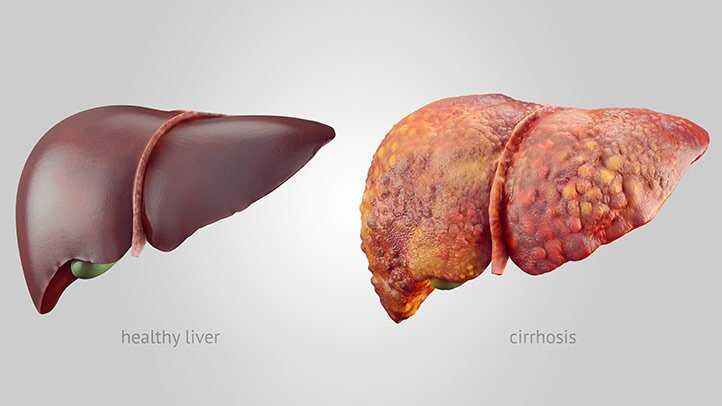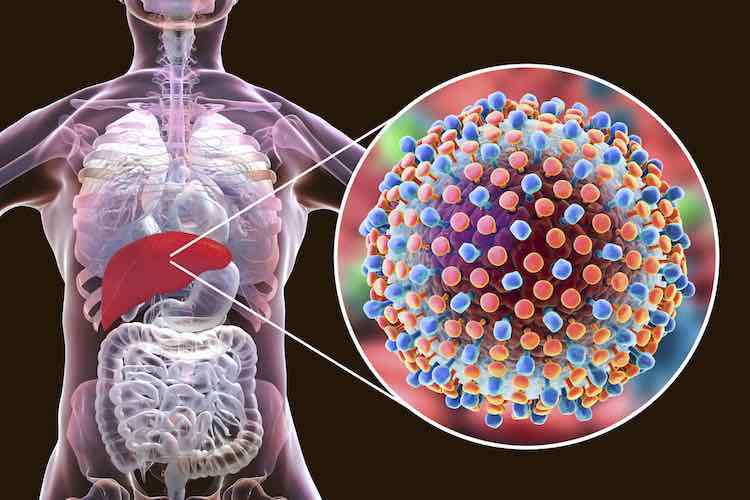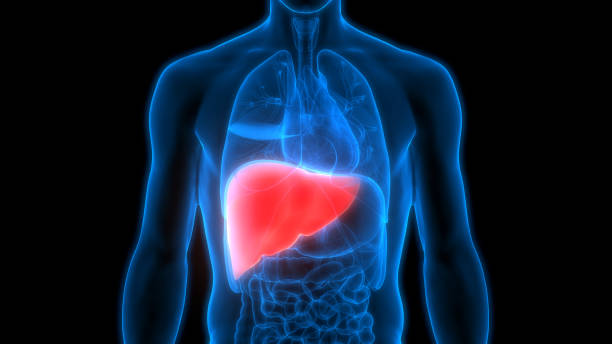Hepatitis refers to an inflammatory condition of the liver, which can can progress to fibrosis , cirrhosis or liver cancer. Hepatitis viruses are the most common cause of hepatitis in the world but other infections, toxic substances like alcohol, certain drugs, and autoimmune diseases can also cause hepatitis.
There are 5 main hepatitis viruses, referred to as types A, B, C, D and E. Different virus is responsible for each type of virally transmitted hepatitis. all these 5 infections are of greatest concern because of the burden of illness and death they cause and the potential for outbreaks and epidemic spread. In particular, types B and C lead to chronic disease in hundreds of millions of people and, together, are the most common cause of liver cirrhosis and cancer.
The 5 Types of Hepatitis
Hepatitis A
Hepatitis A, also called hep A, is a contagious liver infection caused by the hepatitis A virus. Some people have only a mild illness that lasts a few weeks. Others have more severe problems that can last months. You usually get the disease when you eat or drink something contaminated by poop from a person who has the virus.
Symptoms
Hepatitis A signs and symptoms typically don’t appear until you’ve had the virus for a few weeks. But not everyone with hepatitis A develops them. If you do, hepatitis signs and symptoms can include:
- Fatigue
- Sudden nausea and vomiting
- Abdominal pain or discomfort, especially on the upper right side beneath your lower ribs (by your liver)
- Clay-colored bowel movements
- Loss of appetite
- Low-grade fever
- Dark urine
- Joint pain
- Yellowing of the skin and the whites of your eyes (jaundice)
- Intense itching
Causes of Hepatitis A
You can catch the disease by drinking water or eating food that’s been contaminated by someone with the virus. You can also get hepatitis A if you:
- Eat fruits, vegetables, or other foods handled or prepared by a person who has the virus
- Eat raw shellfish harvested from water where the virus lives
- Swallow contaminated ice
- Have sex with someone who has it
- Touch your mouth after touching a contaminated object
Hepatitis B
Hepatitis B liver infection caused by the hepatitis B virus (HBV). HBV is transmitted when blood, semen, or another body fluid from a person infected with virus enters the body of someone who is not infected. For some people, hepatitis B is a short-term illness, but for others, it can become a long-term, chronic infection. Chronic hepatitis B can lead to serious health issues, like cirrhosis or liver cancer.

Symptoms
Symptoms of Hepatitis B usually appear about one to four months after you’ve been infected. Acute symptoms appear around 60–150 days after exposure to the virus, and they can last from several weeks to 6 months.
Hepatitis B signs and symptoms may include:
- Abdominal pain
- Dark urine
- Fever
- Joint pain
- Loss of appetite
- Nausea and vomiting
- Weakness and fatigue
- Yellowing of your skin and the whites of your eyes (jaundice)
Causes of Hepatitis B
- Sexual contact – HBV is transmissible via semen, vaginal fluids, and blood.
- Mother to child – Pregnant women infected with HBV can pass from a mother to a newborn child during delivery
- Sharing needles – HBV easily spreads through needles and syringes contaminated with infected blood. Sharing IV drug paraphernalia puts you at high risk of hepatitis B.
Hepatitis C
Hepatitis C liver infection caused by the hepatitis C virus, HCV can lead to serious liver damage. It causes few symptoms, so most of them don’t know. The virus spreads through an infected person’s blood or body fluids.
Symptoms
- Clay-colored poop
- Dark urine
- Fever
- Fatigue
- Jaundice
- Joint pain
- Loss of appetite
- Nausea
- Stomach pain
- Vomiting
Causes of Hepatitis C
- Hepatitis C is transmitted through blood-to-blood contact with someone infected with HCV
- using or having used inject-able drugs,
- Receiving transfusions or organ transplants before 19 childbirth (from a mother with hepatitis C to her baby)
- sexual contact if blood is exchanged
- Exposure to a needle stick, which is most common in people who work in healthcare
Hepatitis D
Hepatitis D, also known as the hepatitis delta virus is caused by the hepatitis D virus (HDV).The infection that causes the liver to become inflamed. This swelling can impair liver function and cause long-term liver problems, including liver scarring and cancer

Symptoms
- yellowing of the skin and eyes, which is called jaundice.
- abdominal pain.
- vomiting.
- loss of appetite.
- fatigue
- pain in the upper right abdomen, over the liver
- dark urine
- lighter stools
- nausea
Causes of Hepatitis D
Hepatitis D transmit when a person may come into contact with an infected person’s bodily fluids include:
- sharing needles
- having unprotected sex
- having blood-to-blood contact
- during childbirth
- using unsterilized medical or drug equipment
Hepatitis E
Hepatitis E is a potentially serious acute disease. It is caused by the hepatitis E virus (HEV). The virus targets the liver. Most people with hepatitis E get better within a few months. Usually it doesn’t lead to long-term illness. But hepatitis E can be dangerous for pregnant women and people with weak immunity.
Symptoms
- Mild fever
- Feeling very tired
- Fatigue
- vomiting
- Less hunger
- Feeling sick to your stomach
- Throwing up
- Belly pain
- Skin rash or itching
- yellowing of the skin
- dark urine
- liver enlargement
causes of Hepatitis E
- Drinking fecal matter contaminated water mainly living in or traveling to countries with poor sanitation.
- Hepatitis E is more common in parts of the world with poor hand washing habits and lack of clean water.
- Eat under cooked meat from infected animals, such as pigs or deer. Less often, you can get the virus from raw shellfish that comes from tainted water.
These are the main symptoms and causes of hepatitis, identifying these symptoms and checking with doctors on correct time is important. Certain supplements and medications can also affect liver function.





